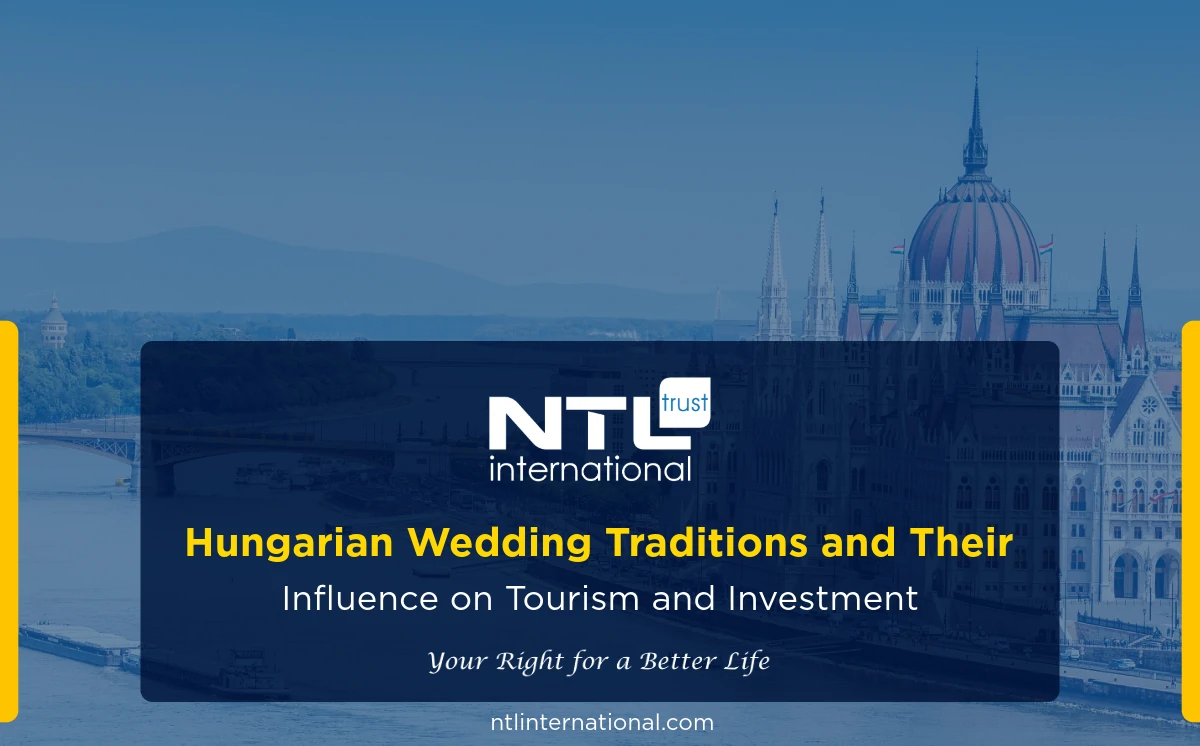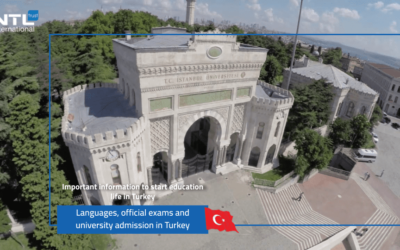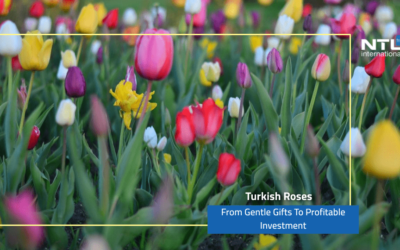
Hungarian wedding traditions are an integral part of the country’s rich and diverse culture. Since ancient times, marriage ceremonies have been associated with numerous customs and rituals that reflect the national identity and social values. Over time, these traditions have evolved from being mere personal celebrations to becoming a significant attraction for both tourism and investment. In this article, we will explore the most important Hungarian wedding traditions, how they attract couples from around the world seeking unique wedding experiences, and how these practices can contribute to boosting local investments, thus supporting the growth of the national economy.
Hungarian Wedding Traditions:
- Engagement Traditions: Hungarian wedding traditions begin with the engagement, where the groom presents a gift to the bride’s family as a sign of respect and commitment. This is followed by meticulous preparations, including selecting traditional, ornate attire and organizing a grand feast for friends and family to celebrate the new union. Afterward, the couple begins preparing for the wedding itself.
- Wedding Ceremony: The wedding day is marked by a religious ceremony, followed by celebrations that can last for several days. Hungarian weddings are known for featuring traditional folk dances, such as the “Csárdás,” which adds joy and liveliness to the festivities. The exchange of gifts between the couple and guests strengthens social bonds and reflects the culture of generosity and hospitality. The bride wears a white dress adorned with hand-embroidered Hungarian patterns, while the groom dons a traditional suit with decorative elements. During the celebration, traditional dishes like “goulash” and “langos” along with a variety of sweets, are served.
- The Couple’s First Dance: No Hungarian wedding is complete without traditional dances. The wedding features the couple’s first dance, which is often a waltz. Afterward, everyone joins the dance floor to perform lively Hungarian folk dances, including the famous “Csárdás,” known for its quick and varied steps.
- Gift Exchange: The exchange of gifts is an integral part of Hungarian wedding traditions. Guests present symbolic gifts to the couple, expressing their love and support. These gifts range from monetary contributions to help the newlyweds start their life together, to household items that assist in beginning their married life.
The Impact of Wedding Traditions on Hungarian Tourism:
Tourists visiting Hungary during the wedding season often find themselves invited to share in these unique experiences, which deepen their understanding of the local culture and create unforgettable memories. Hungarian weddings offer tourists a chance to taste traditional foods, witness folk dances, and partake in celebrations that reflect the country’s rich cultural heritage.
Investment Opportunities in the Wedding Sector:
Hungarian wedding traditions present a golden opportunity for investors in the tourism sector. Organizing weddings and providing related services can be a highly profitable field, as many foreign couples seek out unique and distinctive wedding destinations. Companies that offer wedding planning services, luxury accommodations, and culturally-themed tours can attract a large clientele.
Factors That Make Hungary an Ideal Wedding Destination:
- Historic Sites:
Hungarian castles and palaces provide enchanting venues for weddings, adding a touch of romance and grandeur. - Hungarian Hospitality:
Hungarians are known for their warm hospitality, and these celebrations offer a chance to experience traditional cuisine. - Advanced Infrastructure:
Hungary boasts a strong infrastructure, including luxury hotels and world-class restaurants, ensuring that weddings are organized to the highest standards. - Affordable Costs:
Compared to other European destinations, the cost of organizing weddings in Hungary is relatively affordable, offering great value for money.
It also serves as a major attraction for both tourists and investors. By leveraging these unique traditions, the tourism sector can be enhanced, attracting new investments that support the local economy. Whether you are looking for an investment opportunity or a memorable travel experience, Hungary is the perfect destination.
For more information on investment opportunities and tourism experiences in Hungary, please contact NTL.
Read also:
Languages, Official Exams and University Admission in Türkiye
It is said: “The Turkish language does not accept competition in its country.” Therefore, anyone who thinks about life, learning, and work in Turkey must seriously consider affiliation with the Turkish language teaching institutes for foreigners, which vary in three sources: public universities institutes, private centers, and municipal centers, the differences between these sources are reflected in the curriculum and method of language teaching and whether it focuses on teaching the daily life language, or the academic language, and in the schedule of these courses Quarterly system as in universities or other system, as well as tuition fees for these courses, and the privileges like accredited certificate at most Turkish universities.
Types of Schools and Universities in Türkiye
A family residing in Turkey has several options for teaching children in Turkish schools and universities, Let us begin with schools that vary between public and private schools.
The Turkish Electric Car TOGG
President Recep Tayyip Erdogan unveiled a prototype of Turkey’s first domestically electric car on Friday in Gebze, a district near Istanbul.
Turkish roses, from gentle gifts to profitable investment
Roses in Turkey have turned from beautiful symbols and gentle gifts into profitable trade and investment sectors. The ornamental plant sector is no longer confined to the Turkish local market only, but it has, in the latest years, transcended it to export to various countries around the world.
The third day of the Caribbean Summit 2019
On the third day of the Caribbean Summit for Citizenship by Investment 2019 in Grenada Island, the NTL team accompanied by several official figures, investors and developers toured the city and visited factories of chocolate, cocoa and fruit packaging plants, in the framework of the industrial activity and economic development which accrue in the island of Grenada.





